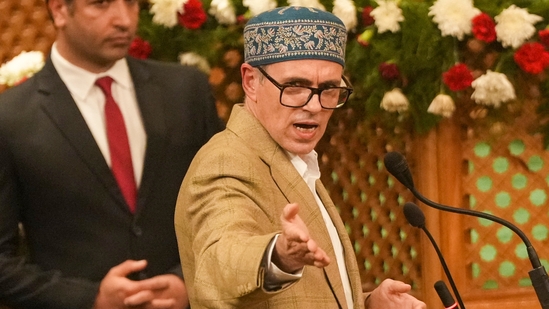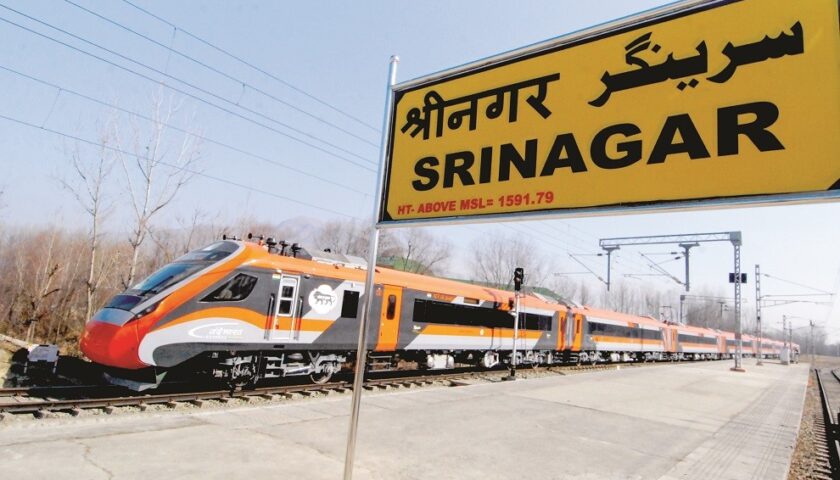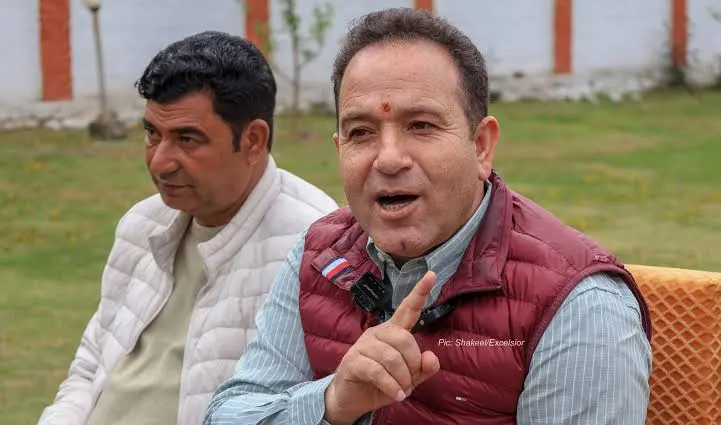Resolution on Article 370 Passed by House Still Stands: CM Omar Abdullah
The Ongoing Debate on Article 370 The debate surrounding Article 370 continues to be a focal point in Jammu & Kashmir’s political landscape. Amid growing political discourse, Chief Minister Omar Abdullah reaffirmed that the resolution on Article 370, passed by the Jammu and Kashmir Legislature, remains valid. His statement comes in response to recent discussions and opposition criticism regarding the absence of Article 370 in the Lieutenant Governor’s (LG) address.
Omar Abdullah’s Firm Stand on Article 370
On Monday, Chief Minister Omar Abdullah addressed media queries following the inaugural session of the J&K Budget session. He categorically stated that the resolution passed by his government during the previous session regarding Article 370 is still alive and binding.
“The resolution still stands. It was passed by the House, with the support of the People’s Democratic Party (PDP) and other parties. There is no need to discuss it again,” he said. Omar Abdullah dismissed speculation that any resolution concerning the special status of Jammu & Kashmir would be rejected and reiterated that the resolution remains valid.
PDP’s Criticism and the Government’s Response
When questioned about the PDP’s criticism over the omission of Article 370 in the LG’s address, Omar Abdullah responded that his government had already taken necessary steps on the matter. “Had we not brought the resolution before, it would have made sense to discuss it now. However, since it was already passed by an overwhelming majority, there is no point in rehashing the debate,” he explained.
The National Conference (NC)-led government, according to Omar Abdullah, remains committed to ensuring that the provisions of Article 370 continue to be acknowledged in legal and political frameworks. The resolution, which was passed during the first session of the legislature in November, was seen as a significant step in reaffirming the state’s unique identity.
BJP and NC: No Alliance in Sight
Speculation about a possible alliance between the Bharatiya Janata Party (BJP) and the National Conference (NC) has been making rounds, with certain BJP leaders hinting at a potential partnership. However, Omar Abdullah dismissed such rumors outright, emphasizing that there is neither scope nor necessity for an alliance between the two parties.
“There have been no discussions regarding an alliance with the BJP. Our ideologies and principles do not align, particularly concerning Jammu & Kashmir,” the Chief Minister said.
He further clarified that while alliances are a common political strategy, the fundamental differences in approach between NC and BJP make any collaboration highly unlikely.
Opposition’s Criticism of the LG’s Address
The absence of a direct mention of Article 370 in the LG’s address triggered criticism from opposition members. They argued that the issue remains central to the political aspirations of J&K and should have been included in the speech. However, Omar Abdullah dismissed these concerns, stating that discussions on the matter should take place within the legislative assembly rather than in public forums.
“We will address all concerns inside the House. It is not the right precedent to discuss legislative matters outside. The debate on the LG’s address will begin tomorrow, and all relevant issues will be discussed during that session,” he stated.
LG’s Address Reflects Government’s Priorities
Omar Abdullah defended the content of the LG’s address, clarifying that it accurately reflects the government’s agenda and priorities. “The LG represents the government and speaks on its behalf. Everything outlined in his speech is part of our collective plan, which we will implement with dedication and unity,” he asserted.
A Look at the Political Landscape of J&K
The renewed discussions around Article 370 highlight the evolving political dynamics in Jammu & Kashmir. While the NC-led government remains firm on the validity of the resolution, opposition parties continue to push for further discussions. The BJP, which has been a vocal advocate of the removal of Article 370, is positioning itself as a strong opposition force in the region.
The 2024 elections saw a significant voter turnout, reflecting the increasing political engagement of the people. The BJP, despite being the largest party in terms of vote share, could not form the government, reinforcing the need for a strong opposition to ensure accountability.
The Future of Article 370 in Jammu & Kashmir
While the resolution passed by the legislature upholds the special status of J&K, the legal and political battle over Article 370 is far from over. Various political parties and civil society groups continue to advocate for its reinstatement, citing historical agreements and the region’s distinct identity.
The National Conference has reiterated its commitment to safeguarding the rights of J&K’s people and ensuring that their voices are heard in the legislative process. Meanwhile, the opposition, including the PDP and BJP, will likely continue to challenge the government’s stance on various issues, including governance, development, and political representation.
Conclusion: A Contentious Yet Crucial Issue
The debate on Article 370 remains one of the most contentious issues in J&K politics. While the NC-led government stands by its resolution, opposition parties are likely to keep the issue alive in political discussions. Chief Minister Omar Abdullah’s firm stance on the matter reflects his party’s commitment to protecting the interests of the people of J&K.
As political dynamics continue to evolve, the discourse on Article 370 will remain a defining aspect of J&K’s governance and future policymaking. Whether the opposition’s criticism translates into concrete legislative challenges remains to be seen, but one thing is clear—Article 370 will continue to be a crucial topic in J&K’s political narrative for years to come.




